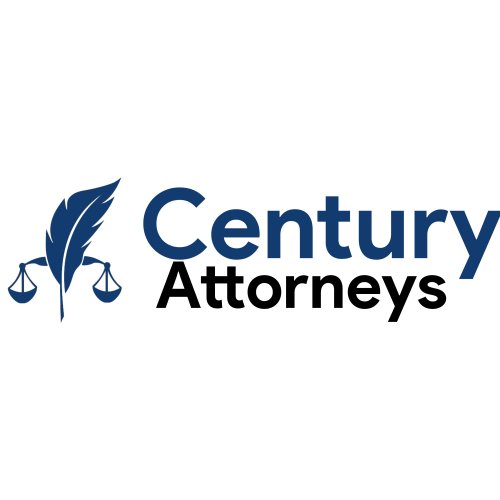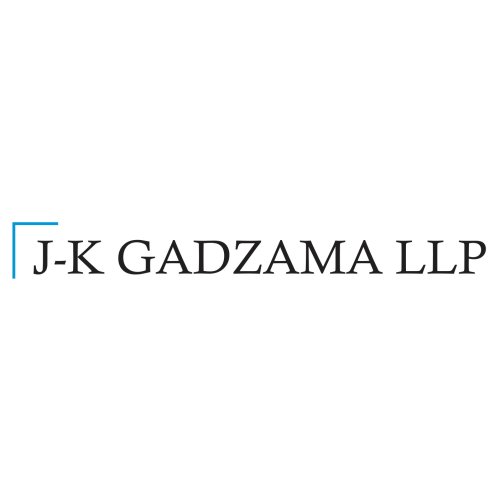Best Employment & Labor Lawyers in Nigeria
Share your needs with us, get contacted by law firms.
Free. Takes 2 min.
Or refine your search by selecting a city:
List of the best lawyers in Nigeria
Legal guides written by Adeola Oyinlade & Co:
- Procedure and Requirements for Work Permit and Visas in Nigeria
- The Step-By-Step Procedure of How to Apply for Microfinance Bank License Online in Nigeria
- How to Ensure the Smooth Recognition and Enforcement of Foreign Judgments in Nigeria
Nigeria Employment & Labor Legal Questions answered by Lawyers
Browse our 5 legal questions about Employment & Labor in Nigeria and read the lawyer answers, or ask your own questions for free.
- Unlawful termination of employment
- Unlawful termination of employment
-
Lawyer answer by Remedium Reel Attorneys
You need to specify you question clearly. Your employment may unlawfully terminated either through formal notice or constructive dismissal. If you have been faced with any of these mode of termination you can approach the court for relief(s) as the...
Read full answer - Unwilling resignation from sack treaths
- I have received sack treaths from my superior, so I unwillingly resigned to avoid a sack history in my career. Do I have right to sue or be protected?
-
Lawyer answer by Asma Lawyers In Pakistan
Dear Sir, yes you have right to sue your employee, along with recovery of damages and stay against compelled resignation letter. Best regards, Asma Tanveer Randhawa Adv
Read full answer - Damages claims from non payments of terminal benefits
- A new company taking over a liability ( with the terminal benefits from the former company inclusive) and refused payment for 4years plus and counting ..
-
Lawyer answer by Nomos Legal Practice
Hello and thank you for your interest to hire a lawyer to claim or receive damages from non-payments of terminal benefits for over 4 years and counting.We increase access to justice globally as we advise clients on their rights and...
Read full answer
Nigeria Employment & Labor Legal Articles
Browse our 1 legal article about Employment & Labor in Nigeria written by expert lawyers.
- Are Unwritten Employment Contracts Legally Valid and Enforceable in Nigeria?
- A contract of employment can exist whether orally or in writing. It can arise out of any discussion, obligation or instruction to do an act as far as the elements of a contract are present. Agreements are made to be honoured. An unwritten contract is enforceable provided it complies with... Read more →
About Employment & Labor Law in Nigeria
Employment and labor law in Nigeria governs the relationship between employers and employees. It ensures fair treatment, regulates working conditions, and provides mechanisms for addressing grievances in the workplace. Nigerian employment laws are primarily derived from statutory provisions, case law, and collective bargaining agreements. These laws cover various aspects, including employment contracts, working hours, wages, leave entitlement, termination, discrimination, and health and safety at work. The Ministry of Labour and Employment is the primary regulatory body overseeing labor issues in Nigeria.
Why You May Need a Lawyer
Many situations can arise in the workplace that may require legal advice or representation. Some common cases include wrongful termination, discrimination or harassment claims, contract disputes, wage and hour disputes, and negotiations of severance packages. Employers may also need legal assistance to ensure compliance with labor laws, to draft employment contracts, or when faced with collective bargaining and labor disputes. Consulting with a lawyer can help clarify your rights and obligations and offer strategies for resolving employment issues.
Local Laws Overview
Nigeria’s local employment laws include several key legislations and regulations. The key statutes include the Labour Act, which sets out provisions concerning wages, contracts of employment, employment conditions, termination, and severance. The National Industrial Court Act of 2006 establishes the National Industrial Court, which handles labor disputes. The Employee Compensation Act provides for compensation to employees who suffer work-related injuries or diseases. The Factories Act regulates the health and safety of workers in industrial settings, while other regulations address specific industries and employment standards.
Frequently Asked Questions
What is the minimum wage in Nigeria?
The national minimum wage in Nigeria is set by the government and may vary periodically. As of the latest update, the minimum wage stands at ₦30,000 per month.
Are employers required to provide written contracts?
Yes, the Labour Act requires that employers provide written contracts for employees within three months of the commencement of employment.
What are the legal working hours in Nigeria?
The standard working hours are typically 8 hours a day and 40 hours per week. Any work beyond this may be considered overtime and should be compensated accordingly.
What types of leave are employees entitled to?
Employees are generally entitled to annual leave, sick leave, public holidays, maternity leave, and casual leave under Nigerian labor laws.
Can an employer terminate an employee without notice?
Termination without notice is generally not permitted unless it is for gross misconduct or as otherwise specified in the employment contract or collective agreement.
What legal protections exist against workplace discrimination?
Nigerian law prohibits discrimination in employment on grounds of race, gender, ethnicity, religion, and other protected categories. Employers must ensure fair treatment in hiring, promotions, and all work-related decisions.
How are disputes between employers and employees resolved?
Employment disputes are typically resolved through negotiation, mediation, arbitration, or litigation. The National Industrial Court is the main forum for adjudicating labor disputes.
Are domestic workers covered under the Labour Act?
Although domestic workers are not explicitly covered under the Labour Act, they are entitled to certain rights concerning fair wages and humane working hours, subject to state-specific regulations.
Can employees join labor unions?
Employees in Nigeria have the right to join or form trade unions to collectively bargain and protect their interests.
What recourse do employees have for unfair treatment or termination?
Employees can file a complaint with the Ministry of Labour and Employment or bring a case before the National Industrial Court for remedy in instances of unfair treatment or wrongful termination.
Additional Resources
For further information and assistance, individuals can reach out to the following resources:
- Ministry of Labour and Employment
- National Industrial Court
- Nigeria Labour Congress
- Trade Union Congress of Nigeria
- International Labour Organization (ILO) Nigeria Country Office
Next Steps
If you require legal assistance in employment and labor matters, consider the following steps:
- Identify and document the issues you are facing in your employment situation.
- Contact a lawyer who specializes in employment and labor law to discuss your case and seek advice.
- Research and utilize available resources and governmental bodies that could assist you with your employment-related concerns.
- Consider mediation or arbitration as alternative dispute resolution options before pursuing litigation.
Lawzana helps you find the best lawyers and law firms in Nigeria through a curated and pre-screened list of qualified legal professionals. Our platform offers rankings and detailed profiles of attorneys and law firms, allowing you to compare based on practice areas, including Employment & Labor, experience, and client feedback.
Each profile includes a description of the firm's areas of practice, client reviews, team members and partners, year of establishment, spoken languages, office locations, contact information, social media presence, and any published articles or resources. Most firms on our platform speak English and are experienced in both local and international legal matters.
Get a quote from top-rated law firms in Nigeria — quickly, securely, and without unnecessary hassle.
Disclaimer:
The information provided on this page is for general informational purposes only and does not constitute legal advice. While we strive to ensure the accuracy and relevance of the content, legal information may change over time, and interpretations of the law can vary. You should always consult with a qualified legal professional for advice specific to your situation.
We disclaim all liability for actions taken or not taken based on the content of this page. If you believe any information is incorrect or outdated, please contact us, and we will review and update it where appropriate.
Browse employment & labor law firms by service in Nigeria
Nigeria Attorneys in related practice areas.
Browse employment & labor law firms by city in Nigeria
Refine your search by selecting a city.

















